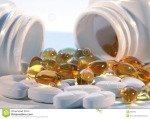I wanted to share this powerful video on how we can prevent the leading causes of death. Important stuff, right? I highly recommend watching all (or at least part) of this video. To summarize and hopefully encourage you to watch it, Dr. Michael Greger presents scientific facts on how we can prevent 14 of the 15 leading causes of death. In the US, the 15 leading causes of death (in order) are:
- Heart Disease
- Cancer
- Respiratory Disease, (COPD, Emphysema)
- Stroke
- Accidents
- Alzheimer’s Disease
- Diabetes
- Kidney Failure
- Influenza
- Suicide
- Blood Infection
- Liver Disease
- High Blood Pressure
- Parkinson’s Disease
- Pneumonia
And interestingly enough, the medical system, when you look at side  effects from prescription drugs, medical mistakes and hospital acquired infections, results in 187,000 deaths per year making it the 3rd leading cause of death in the US! (Good reason to avoid unnecessary doctor visits).
effects from prescription drugs, medical mistakes and hospital acquired infections, results in 187,000 deaths per year making it the 3rd leading cause of death in the US! (Good reason to avoid unnecessary doctor visits).
 ALL of these leading causes of death, with the exception of accidents, can be prevented or combated with a strict vegetarian (i.e.: vegan) diet.
ALL of these leading causes of death, with the exception of accidents, can be prevented or combated with a strict vegetarian (i.e.: vegan) diet.
Don’t worry if you are a devoted meat eater. Small changes in your diet like adding in greens at every meal and cutting out meat a few days a week will still have a positive influence on your health.
But, for me, I have found the vegan route to be the best option. For example, in one year, my cholesterol has dropped 38 points, and my triglycerides (the measure of fat in the blood) dropped 104 points! That’s proof enough for me.
Here is the link to the video http://nutritionfacts.org/video/uprooting-the-leading-causes-of-death/

